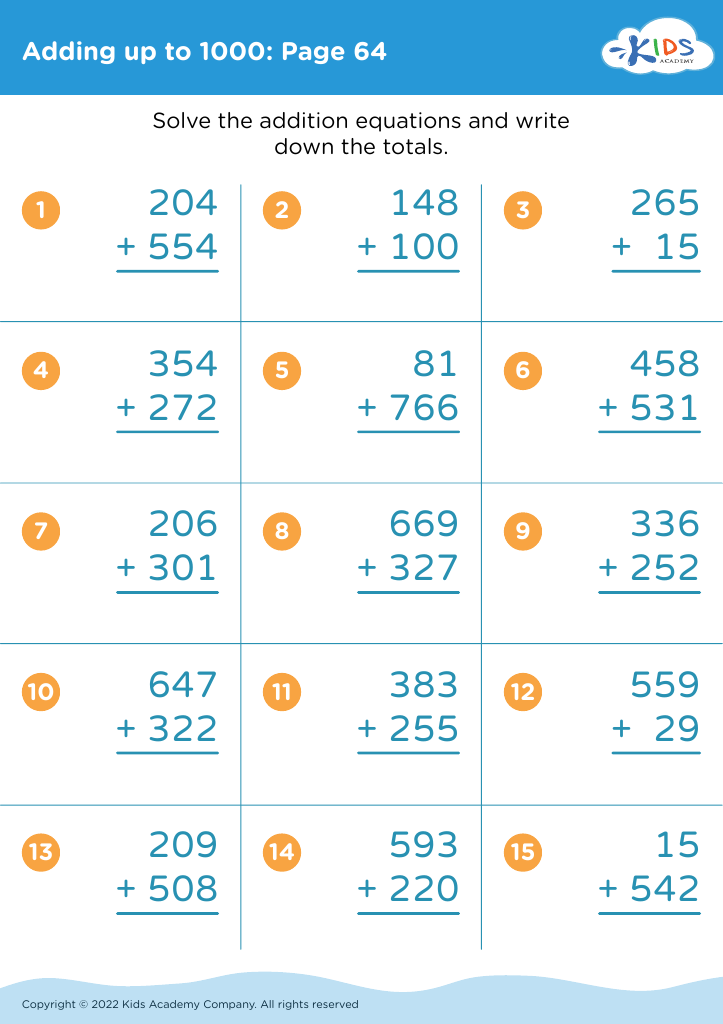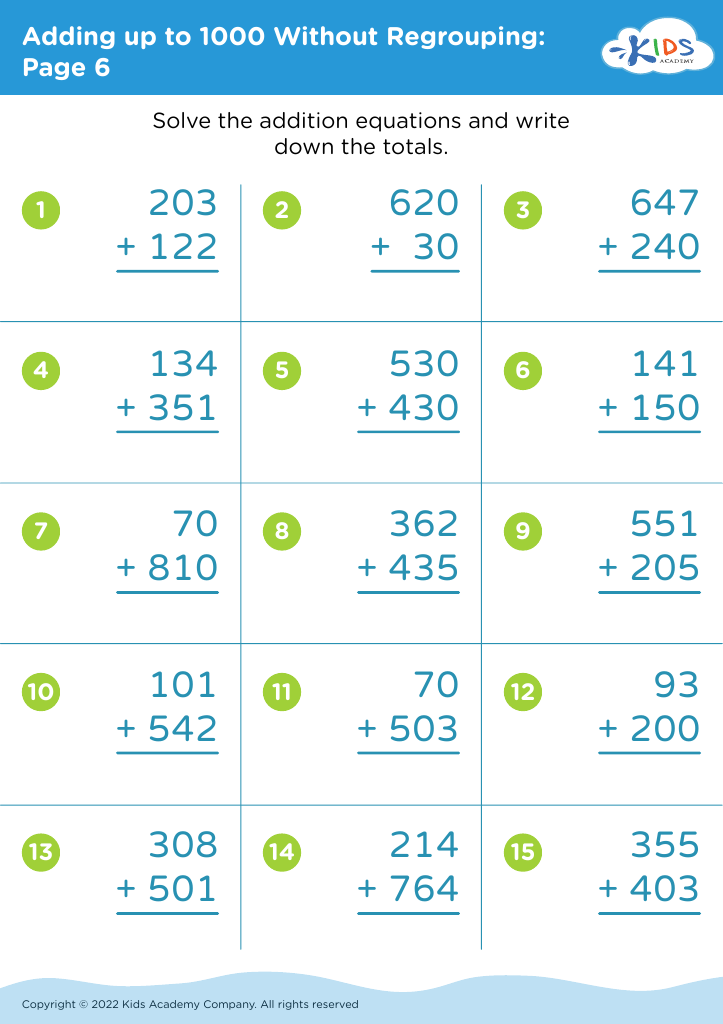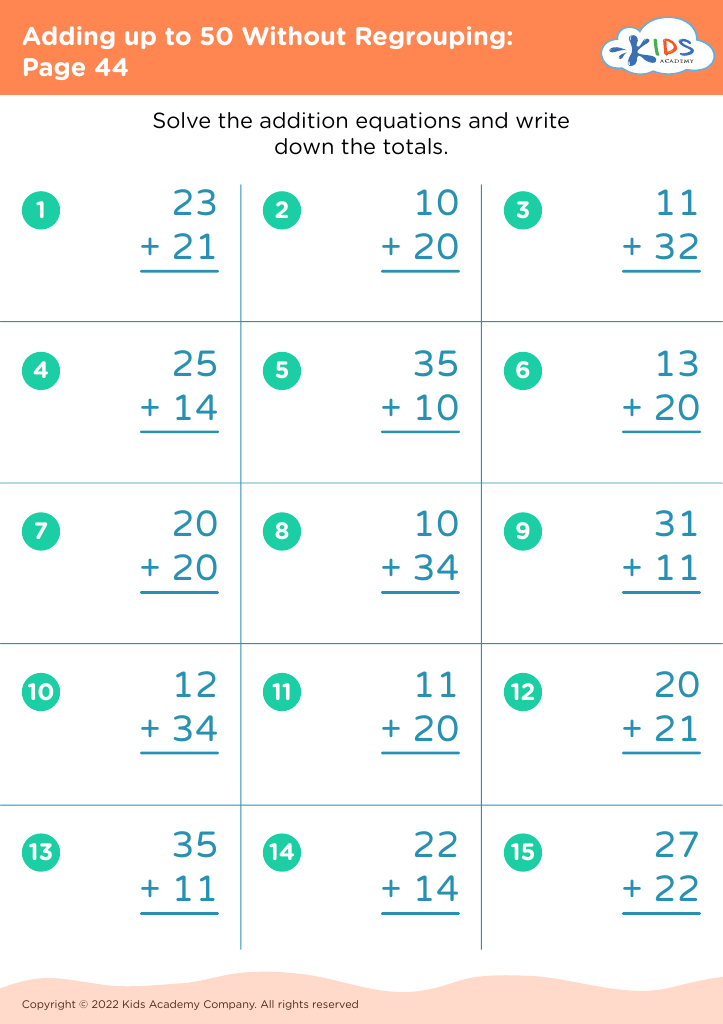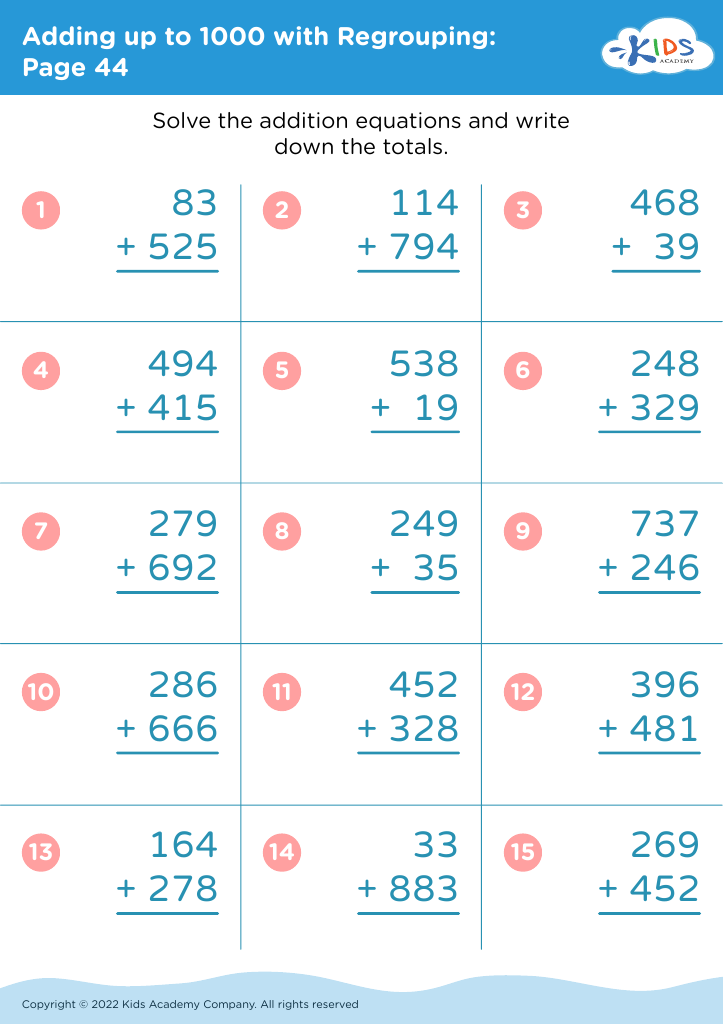Understanding sequencing Addition Worksheets for 8-Year-Olds
7 filtered results
-
From - To
Discover the importance of sequencing in addition with our engaging worksheets designed specifically for 8-year-olds. Our collection of printable resources helps young learners grasp the concept of ordering numbers, enhancing their mathematical skills and problem-solving abilities. By practicing sequencing in addition, children develop a stronger foundation for more complex math concepts. These worksheets are tailored to captivate young minds, making learning fun and interactive. With a variety of exercises that challenge and motivate your child, our sequencing addition worksheets will ensure they gain confidence and proficiency in math. Start your child on the path to success today!
Understanding sequencing addition is vital for 8-year-olds as it lays the foundation for their mathematical development and critical thinking skills. At this age, children are transitioning from simple arithmetic to more complex problem-solving. Mastering sequencing in addition helps them understand the order of operations and the relationship between numbers, which is crucial for tackling larger mathematical concepts later on, such as subtraction, multiplication, and division.
Teachers and parents should care because sequencing promotes logical reasoning, enhances cognitive skills, and boosts confidence in mathematics. It encourages children to approach problems systematically—an ability that extends beyond math into everyday decision-making and planning. For example, understanding how to break down a simple addition problem into its sequential components helps children to systematically solve it, enabling them to tackle more complex scenarios in the future with ease.
Moreover, fostering strong mathematical skills at this age can ignite a lasting interest in STEM-related fields, contributing to a balanced education. Therefore, investing time in helping children master sequencing addition not only aids their immediate educational journey but also equips them with life skills essential for their personal and academic success.





























